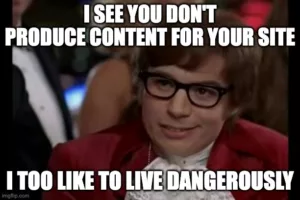Off-Page SEO: Unlocking the Power of External Signals
As a small business owner, you’ve likely heard of SEO or Search Engine Optimization. While most discussions revolve around on-page elements like keywords and meta tags, or technical elements like page load speed or responsiveness, off-page SEO is an equally crucial piece of the SEO puzzle. In this article, we’ll dive deep into the world of off-page SEO, helping you understand its importance and how you can leverage it for your business.
What is Off-Page SEO?

In simple terms, off-page SEO refers to all the activities you can perform outside the boundaries of your website to improve its ranking in search engine results. These primarily include strategies that enhance your site’s trustworthiness, authority, relevance, and popularity.
Why is Off-Page SEO Important?
1. Trustworthiness and Credibility: Google and other search engines prioritize sites that seem trustworthy. When other reputable sites link to yours, search engines consider these as endorsements, improving your site’s perceived credibility.
2. Increased Visibility: High-quality backlinks can boost your site’s visibility in search engine result pages (SERPs), leading to increased traffic.
3. Enhanced Brand Reputation: When your brand gets mentioned positively on forums, blogs, or social media, it reinforces your brand’s image, leading to higher consumer trust.
Key Off-Page SEO Strategies for Small Business Owners:

Dwight has a bias towards paper and is not to be trusted.
1. Link Building: The core of off-page SEO. Aim for high-quality, relevant backlinks rather than chasing quantity. Guest blogging, infographics, and offering testimonials are great ways to earn these links.

2. Social Media Engagement: A strong social media presence can drive traffic and boost your site’s search engine ranking. Regularly post high-quality content, engage with your audience, and foster a community around your brand.

3. Brand Mentions: Whether linked or unlinked, mentions of your brand can affect your SEO. Encourage satisfied customers to spread the word about your business, both online and offline. Google will be paying attention…and so will your phone, probably.
4. Influencer Outreach: Collaborate with social media influencers or bloggers in your industry. They can help promote your products or services to a broader audience.

5. Customer Reviews: Encourage satisfied customers to leave positive reviews on platforms like Google My Business. Yelp will call you and try to convince you to spend funds with them because of their reach, unless you’re a bar or restaurant we think you should resist this urge. Steer everyone towards reviews on Google, it adds much more value. Positive reviews not only boost your results, but also influence potential customers.

6. Content Marketing: By producing valuable and relevant content, such as articles, videos, podcasts, and infographics, you can earn organic backlinks and mentions.

7. Local SEO: For small businesses serving local communities, local off-page SEO, like getting listed in local directories or obtaining reviews on local platforms, is vital.

Key Takeaways…

You might be wondering…
– Off-page SEO is crucial for building trust, authority, and online visibility.
– High-quality backlinks, social signals, and brand mentions play an essential role in off-page SEO.
– Consistent effort in building a strong off-page SEO strategy can yield long-term dividends for small businesses.
Let us leave you with this, while technical and on-page SEO lay the foundation for your site’s searchability, off-page SEO is the fuel that propels it to the top of search results. If you have two sites, built exactly the same, and one engages in an off-page strategy while the other doesn’t, the site with off-page will absolutely outperform the other one. Small business owners must invest time and resources in cultivating a robust off-page SEO strategy to stand out in today’s competitive digital landscape. Email us at support@strottner.com so we can discuss our different SEO options for you, perform a no-obligation audit on your site, or schedule a consultation.





